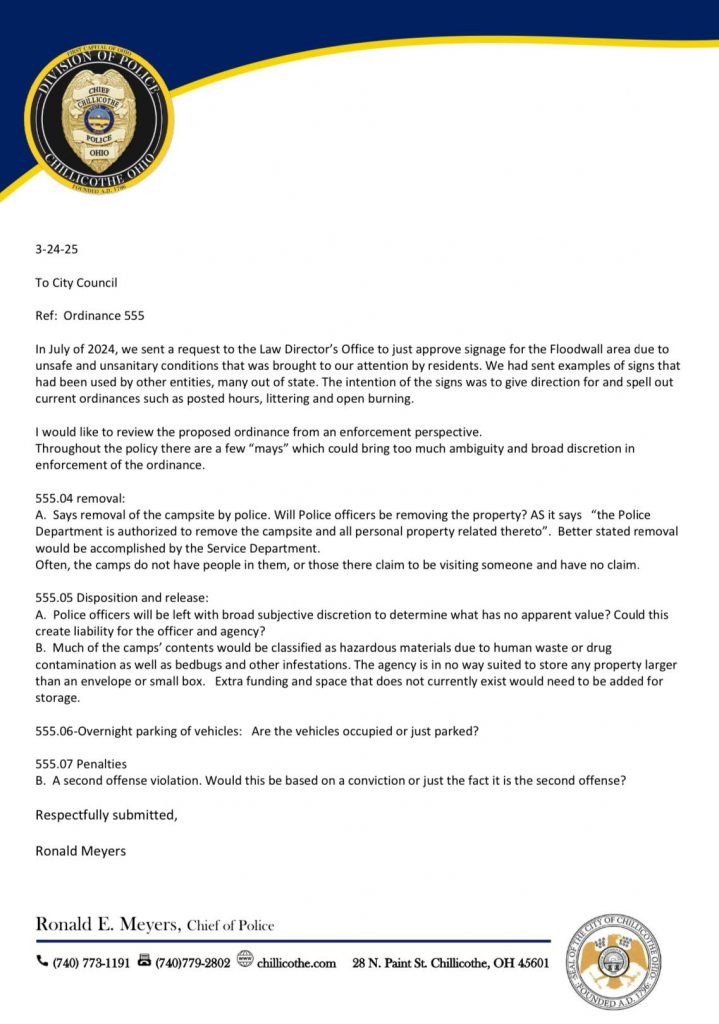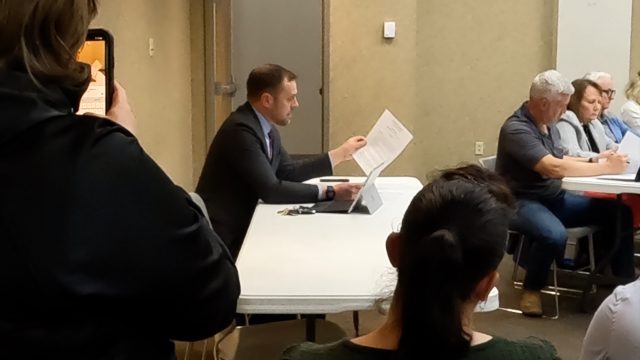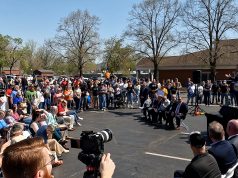
He Has the Power to Veto, but Council also has the Power to Override
Chillicothe — In Monday’s council session where the debate on the “Anti-Camping” ordinance continued before it was passed, Mayor Luke Feeney stated that he was opposed to it. Part of his duties are to sign legislation into law.
Feeney gave a brief briefing to council (hear him in his own words below). In it, he said he had nothing new to offer on the Anti-Camping ordinance (or revision of city chapter 555), but wanted to voice his opposition. He also said he supported the Chief of Police.
Chief Ron Meyers had released a statement on March 25th saying that all he had requested was approved signage, and that the proposed legislation was unclear in parts and would require additional police funding and facilities (see below).
Feeney urged council to table the item “and consider an approach that is more balanced.” Council did pass the item on third reading in that session.
In my interview with him, the Reverend Terry Williams suggested that Feeney could veto the ordinance, or send it back to council.
This morning, Feeney’s staff told me that he has not yet received the legislation to sign. (I usually see him signing it after each council session, but the staff told me that sometimes there is a delay.)
All legislation passed by council – the legislative part of city government – must be signed by the mayor, the executive part. State law provides that legislation that does not have “emergency language” takes effect “after it is filed with the mayor of a city or passed by the legislative authority in a village” (though I can’t find which is the legal date to start the timefame).
Ohio Revised Code also allows the mayor to veto legislation by not signing it. He has 10 days “after its passage or adoption, [to] return it, with his objections.” If he does not sign it but also does not return it, the legislation will take effect in 10 days.
Council can override a mayor’s veto with a 2/3rds vote after the 10 days. In the current eight-member Chillicothe Council, that would probably be six votes – while the “Anti-Camping” ordinance was passed with only five.
In an interview with Mike Smith of Litter Media on Tuesday morning, Feeney said he was not sure how he would deal with the legislation. He said In his 10 years as mayor, he has never vetoed an action by council. (Feeney addresses the Anti-Camping ordinance between 5:40 and 12:10 in the video.)
In his briefing, Feeney also said he supported putting the renewal of the city streets 2% tax levy on the fall ballot, which council did on third reading.












